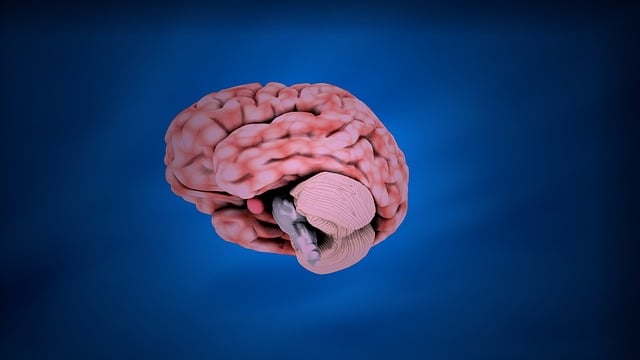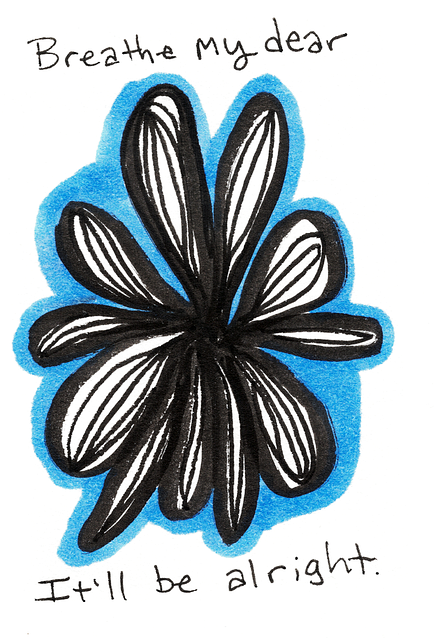Young international adoptees face unique stress challenges due to cultural adjustments, past traumas, and identity formation. Cultural-sensitive therapy, incorporating tailored wellness coaching, plays a vital role in their emotional healing. Techniques like cognitive-behavioral therapy (CBT), mindfulness meditation, play therapy, and self-care practices help manage stress, build resilience, and promote overall well-being for these vulnerable children. Educators can also contribute by teaching simple stress management tools and empathy-building strategies in the classroom setting.
Stress management techniques are crucial for young international adoptees, who often face unique challenges adapting to new cultures and environments. This article explores understanding stress in this demographic, its impact on mental health, and effective therapy approaches tailored for their needs. We delve into practical tools and coping strategies, offering insights for professionals supporting these vulnerable children. By equipping them with effective techniques, we aim to enhance their resilience and overall well-being, especially within the context of international adoptions.
- Understanding Stress in Young International Adoptees
- Unique Challenges and Their Impact on Children's Mental Health
- Effective Therapy Approaches for Stress Management
- Practical Tools: Teaching Coping Strategies to Young Children
Understanding Stress in Young International Adoptees

Stress is a universal experience, but its impact can vary greatly among individuals, especially those who have experienced significant life changes, such as young international adoptees. These children often face unique challenges in adapting to new environments, languages, and cultural norms, which can lead to elevated stress levels. Understanding their specific stressors is crucial for developing effective coping strategies. Therapy for young children in international adoptions should address not only the typical adjustment issues but also the complex interplay of cultural differences, potential trauma, and the emotional healing processes required to thrive in a new home.
The concept of cultural sensitivity in mental healthcare practice plays a pivotal role here. It involves creating a safe and supportive environment that acknowledges and respects the adoptee’s original cultural background while guiding them toward building a new identity. Mental wellness coaching programs designed for this demographic can offer tailored strategies, incorporating cultural sensitivity to enhance emotional healing processes. By recognizing and addressing these unique needs, mental health professionals can better equip young international adoptees with tools to manage stress effectively and promote overall well-being.
Unique Challenges and Their Impact on Children's Mental Health

Children facing unique challenges, such as those involved in international adoptions, often encounter significant stressors that can impact their mental health and development. These experiences may include adjusting to new cultural environments, adapting to different caregiving systems, and managing the emotional complexities of their pasts. The stress associated with these transitions can lead to a range of difficulties, from anxiety and depression to behavioral problems and sleep disturbances.
Addressing these challenges requires tailored therapy for young children, focusing on empathy building strategies and confidence boosting techniques that help them make sense of their experiences. Emotional well-being promotion techniques, such as play therapy and mindfulness exercises, can be instrumental in helping children process trauma, build resilience, and develop healthy coping mechanisms. By providing supportive environments and evidence-based interventions, mental health professionals can foster positive outcomes for these vulnerable youth.
Effective Therapy Approaches for Stress Management

Stress management techniques are particularly crucial for young children, especially those involved in international adoptions. Therapists use a variety of effective approaches to help these children cope with stress and trauma. One prominent method is cognitive-behavioral therapy (CBT), which aids in identifying and changing negative thought patterns and behaviors contributing to stress. This therapy is tailored to the child’s unique experiences, focusing on building resilience and coping strategies.
Additionally, mindfulness meditation has gained prominence as a powerful tool for Depression Prevention among children. By promoting present-moment awareness and non-judgmental acceptance, mindfulness helps young individuals manage stress responses effectively. Cultural sensitivity in mental healthcare practice is also essential, ensuring that therapeutic approaches are adapted to the child’s cultural background, enhancing the effectiveness of treatment.
Practical Tools: Teaching Coping Strategies to Young Children

Teaching young children effective stress management techniques is a valuable skill that can significantly impact their overall well-being, especially for those who have experienced therapy or international adoptions. These early years are crucial for developing emotional resilience, and educators play a pivotal role in equipping them with practical tools to cope with life’s challenges. One approach is to introduce simple self-care practices tailored to their age group. For instance, encouraging mindful breathing exercises or creating calming spaces within the classroom can provide immediate relief during moments of stress.
Additionally, empathy building strategies are essential for fostering a sense of security and understanding. Teachers can guide children in recognizing and expressing their emotions by incorporating activities that promote active listening and perspective-taking. Mindfulness meditation, when adapted for younger audiences, can be a powerful tool to enhance their ability to stay present and regulate their reactions. These coping strategies not only help children navigate their immediate surroundings but also lay the foundation for healthy emotional development in the long term.
Stress management techniques are invaluable tools for young international adoptees, addressing unique challenges that can impact their mental health. By understanding stress and employing effective therapy approaches, such as teaching coping strategies, professionals can foster resilience in these children. This holistic approach ensures that they receive the necessary support to thrive, both emotionally and psychologically, in their new environments, ultimately enhancing their overall well-being. Effective therapy for young children in international adoptions involves empowering them with practical tools to navigate stress, leading to healthier and happier lives.














